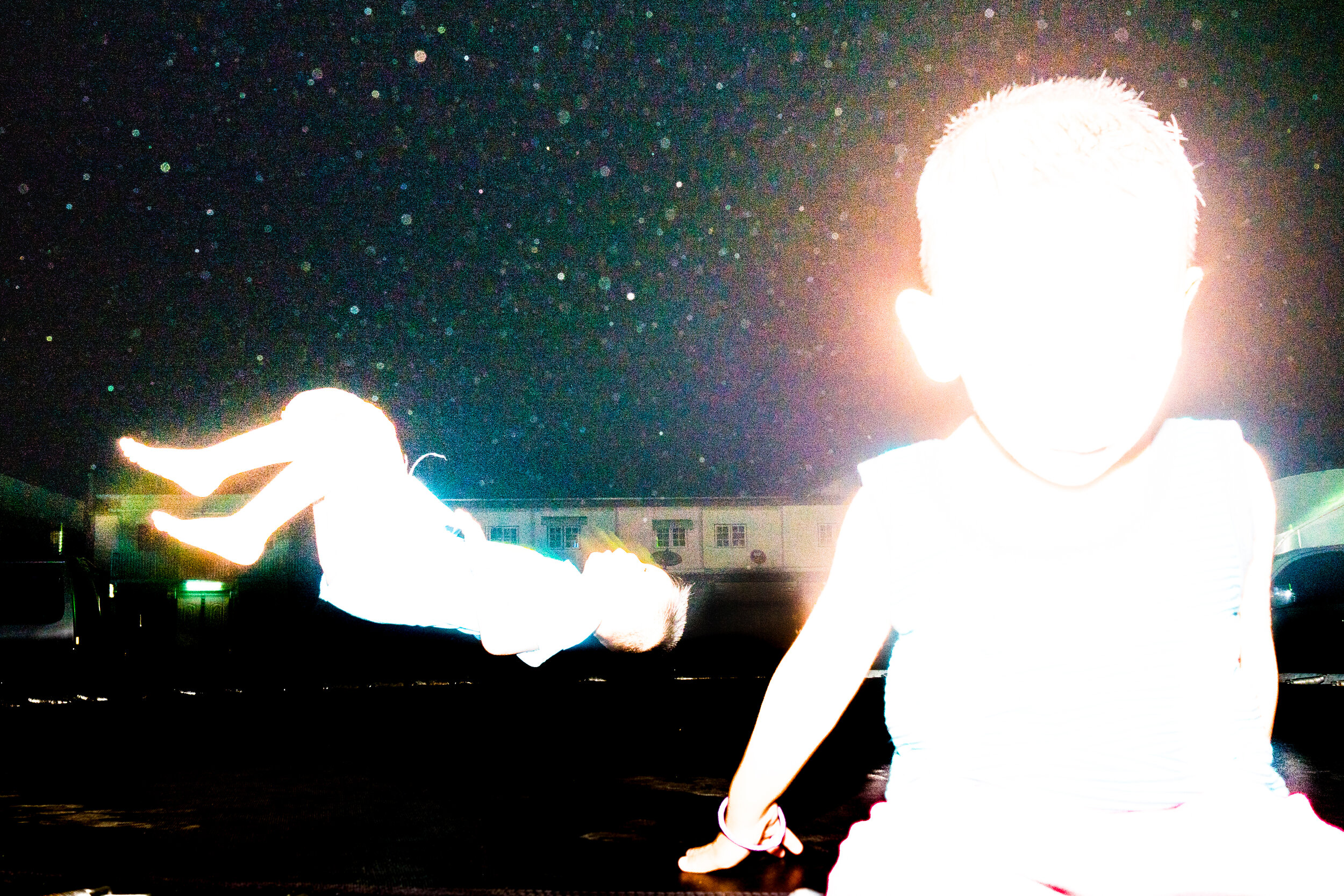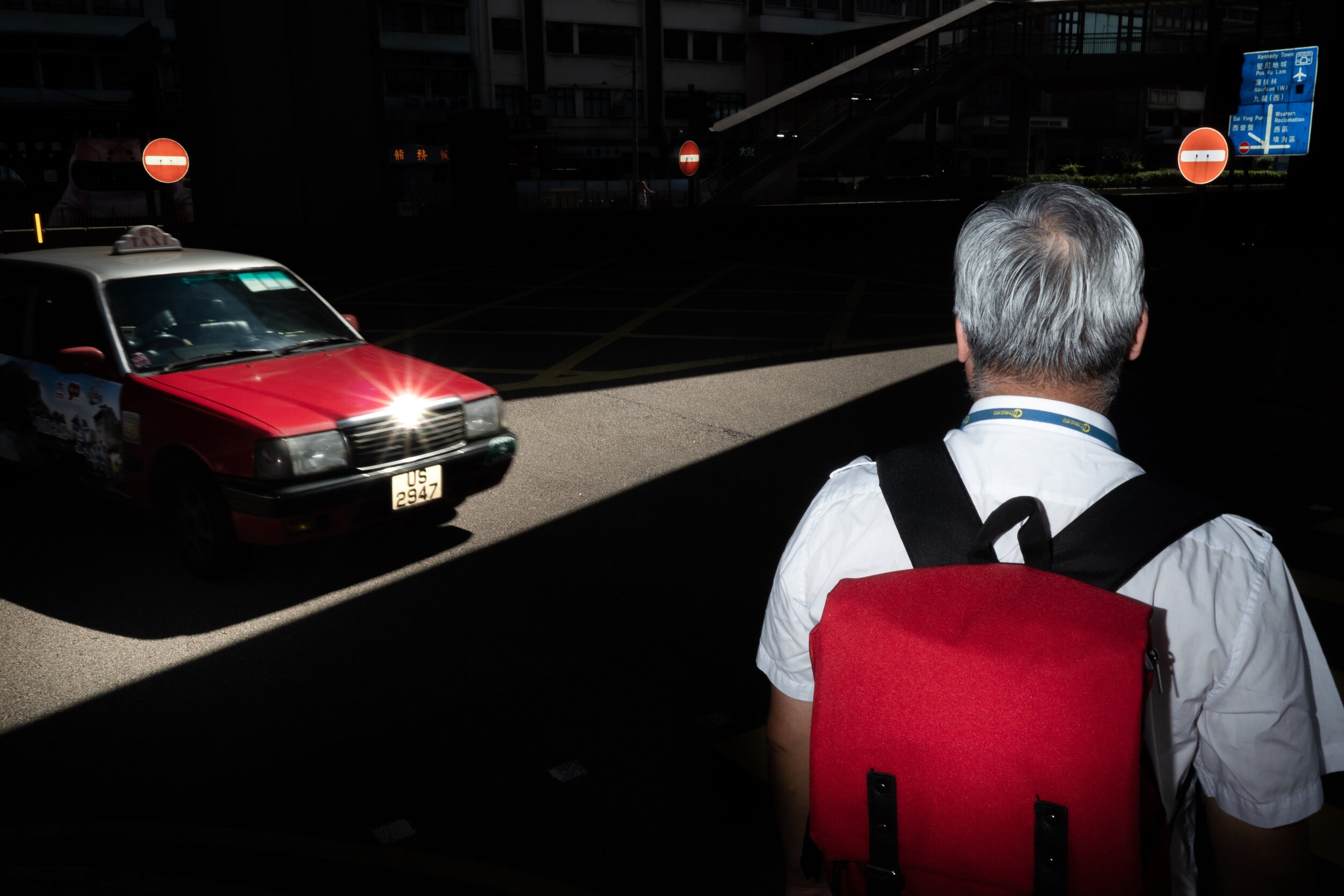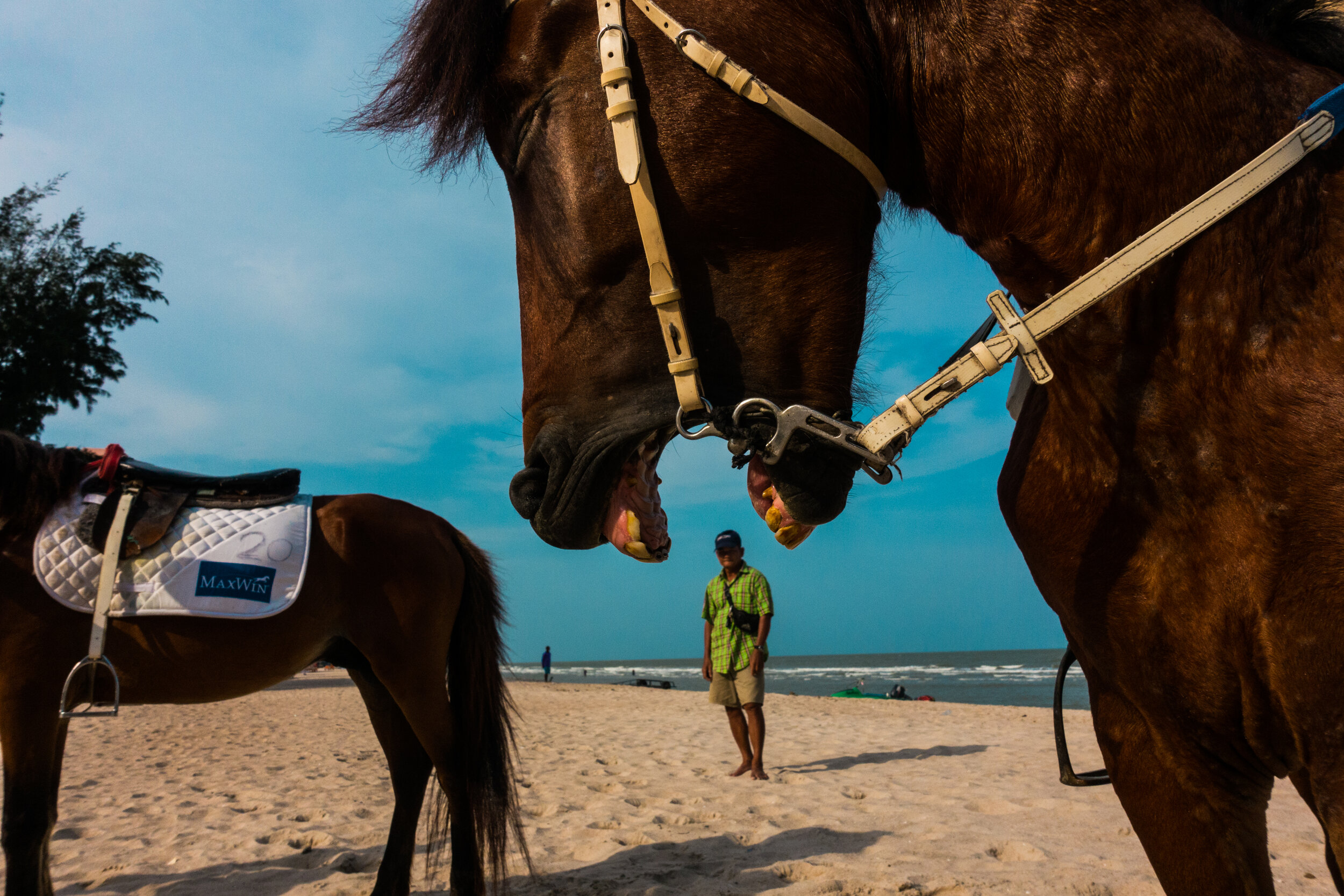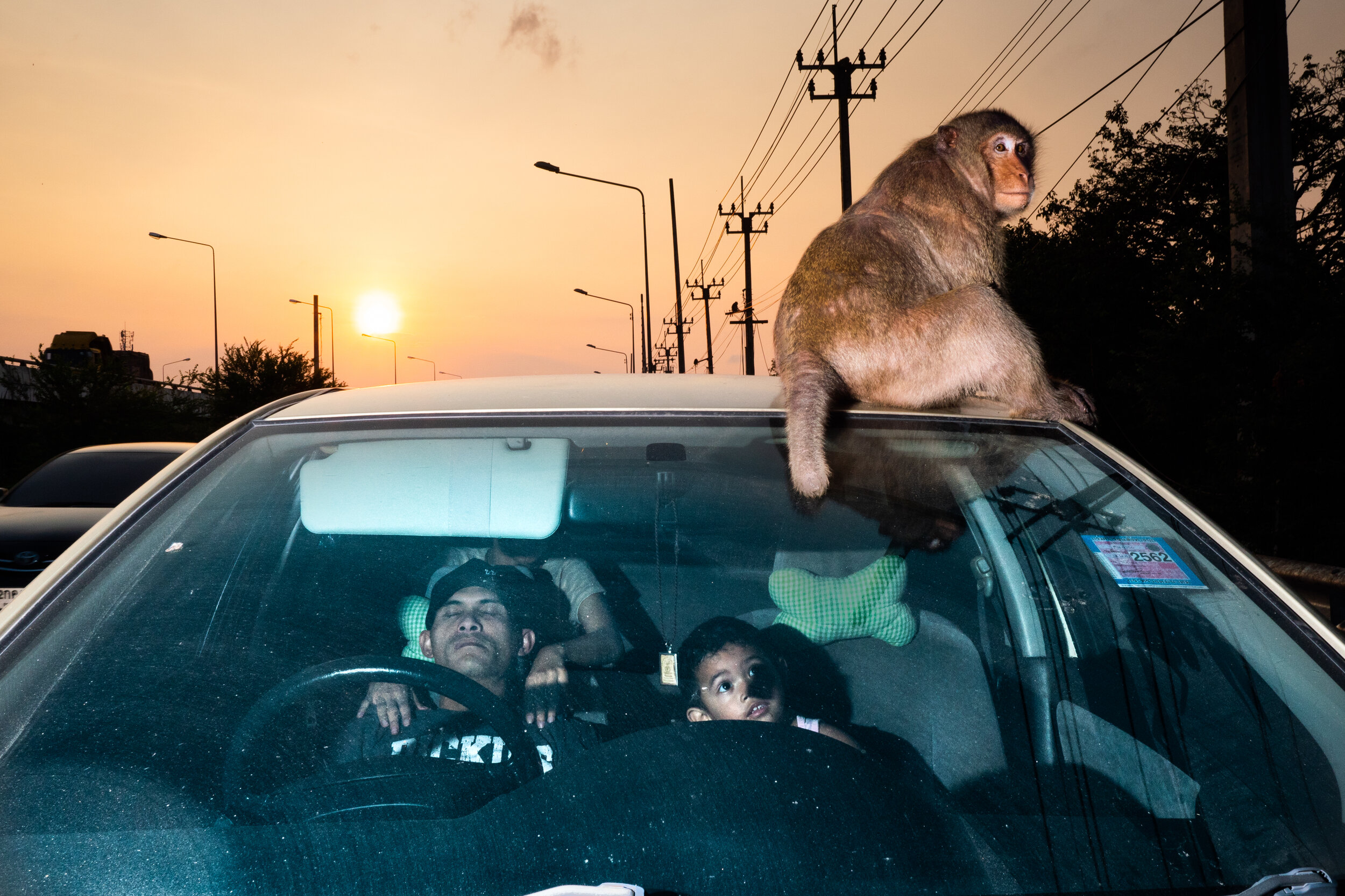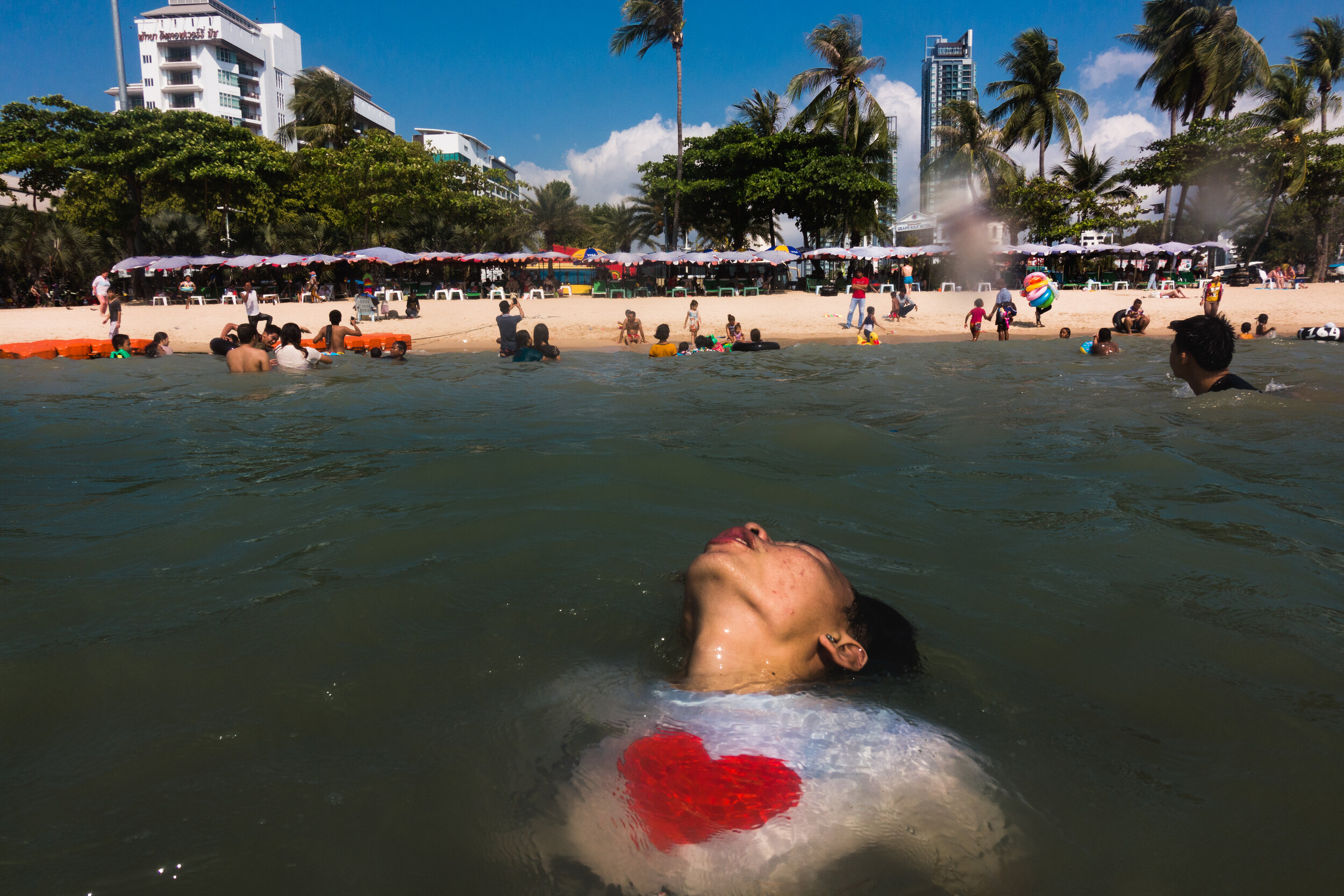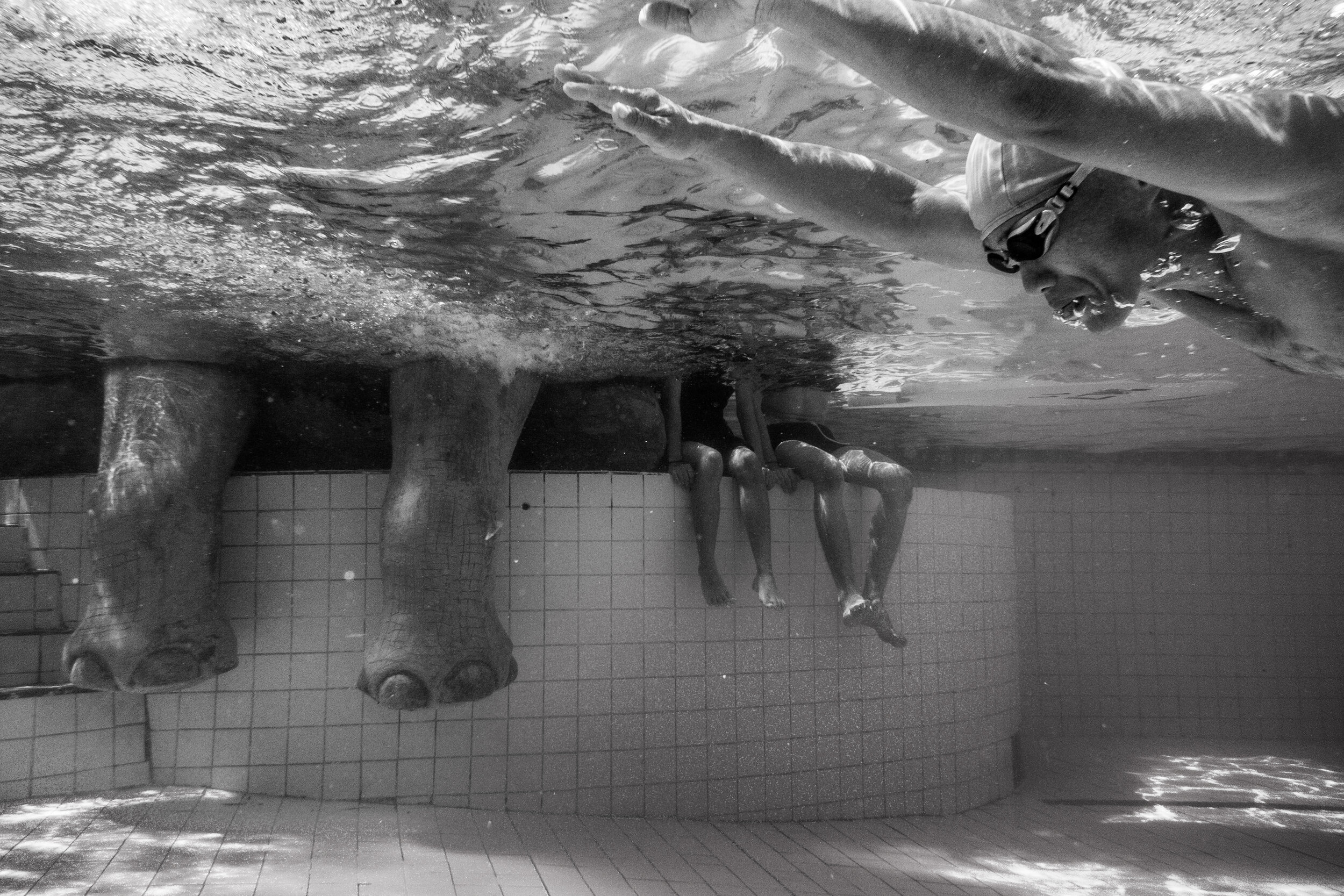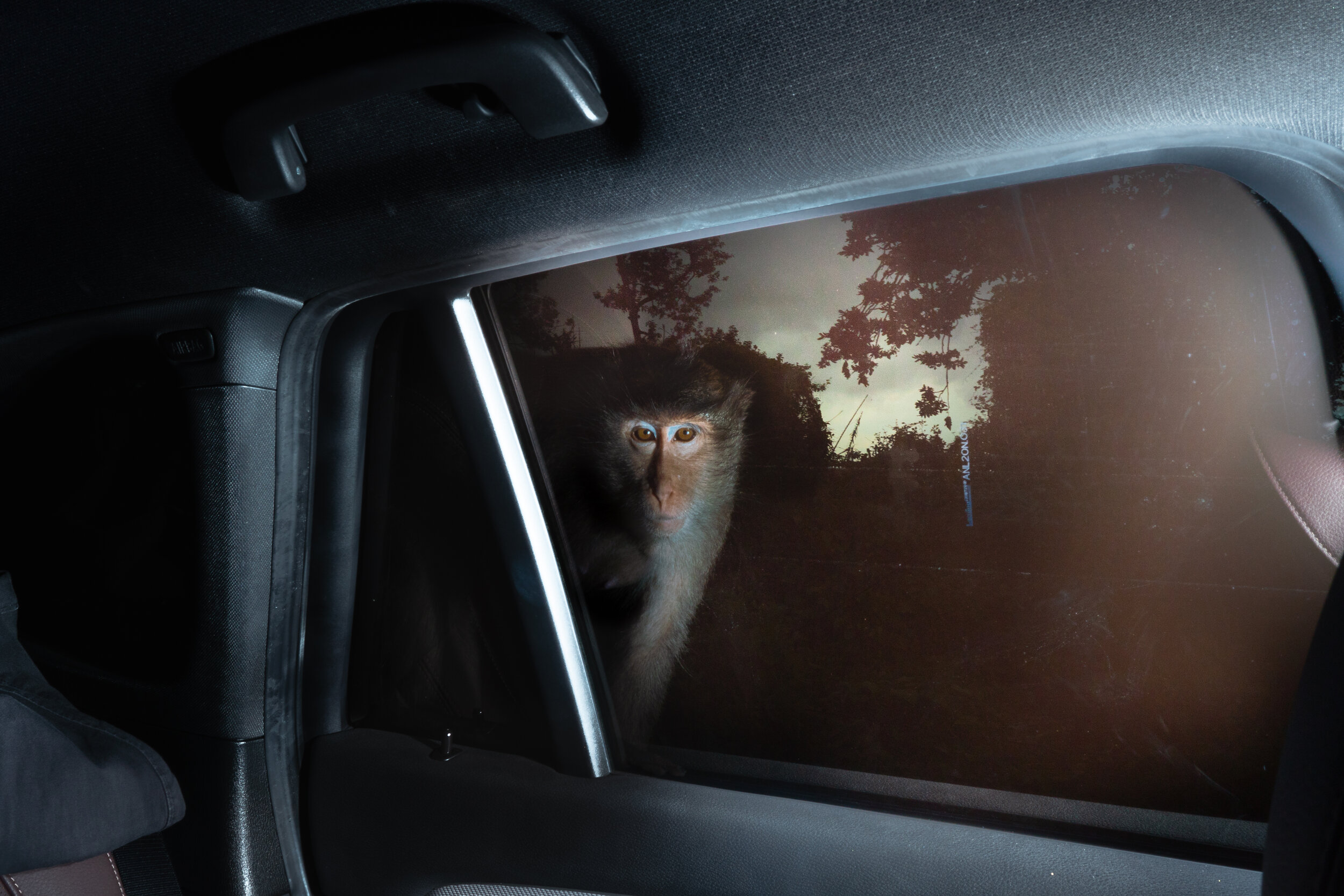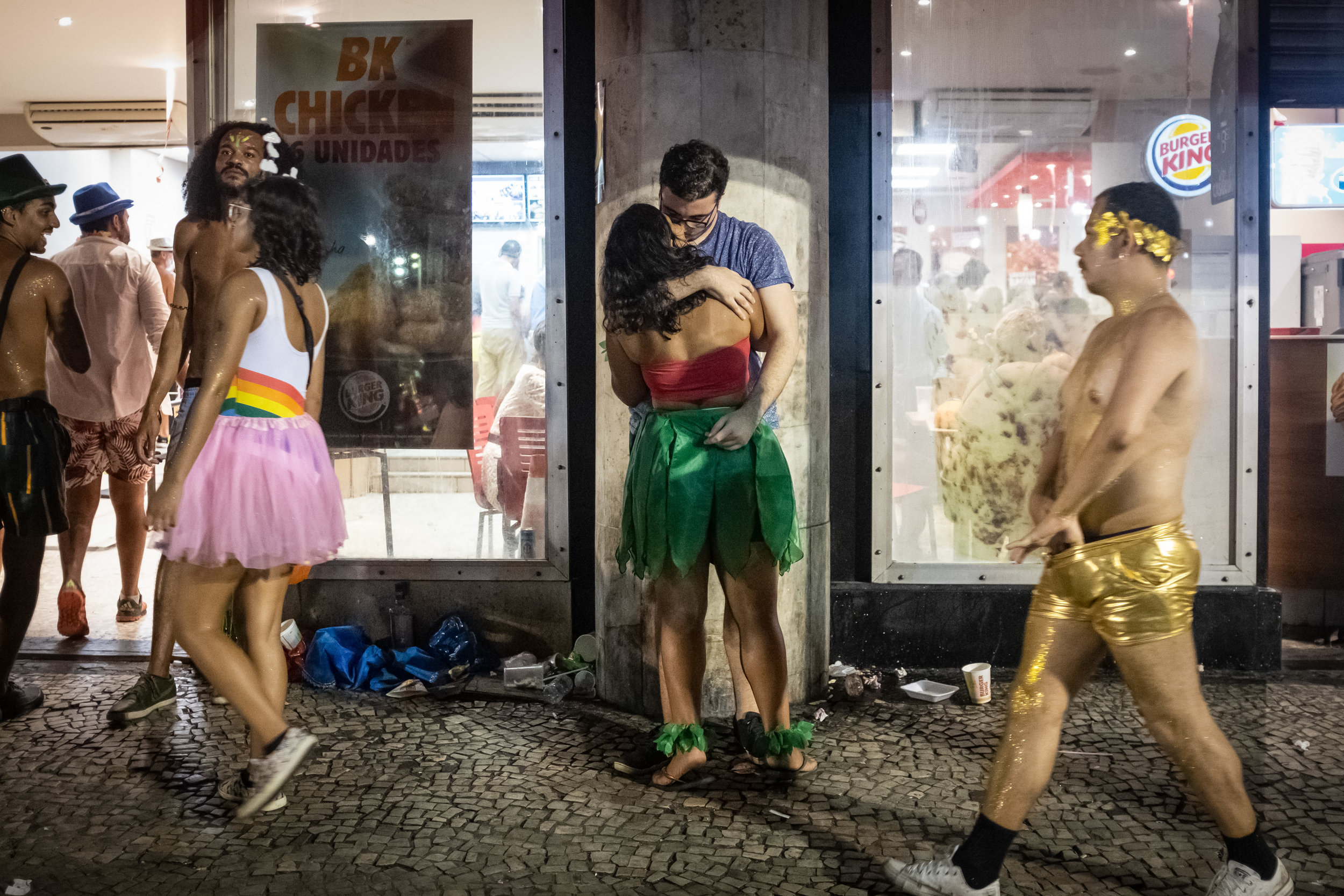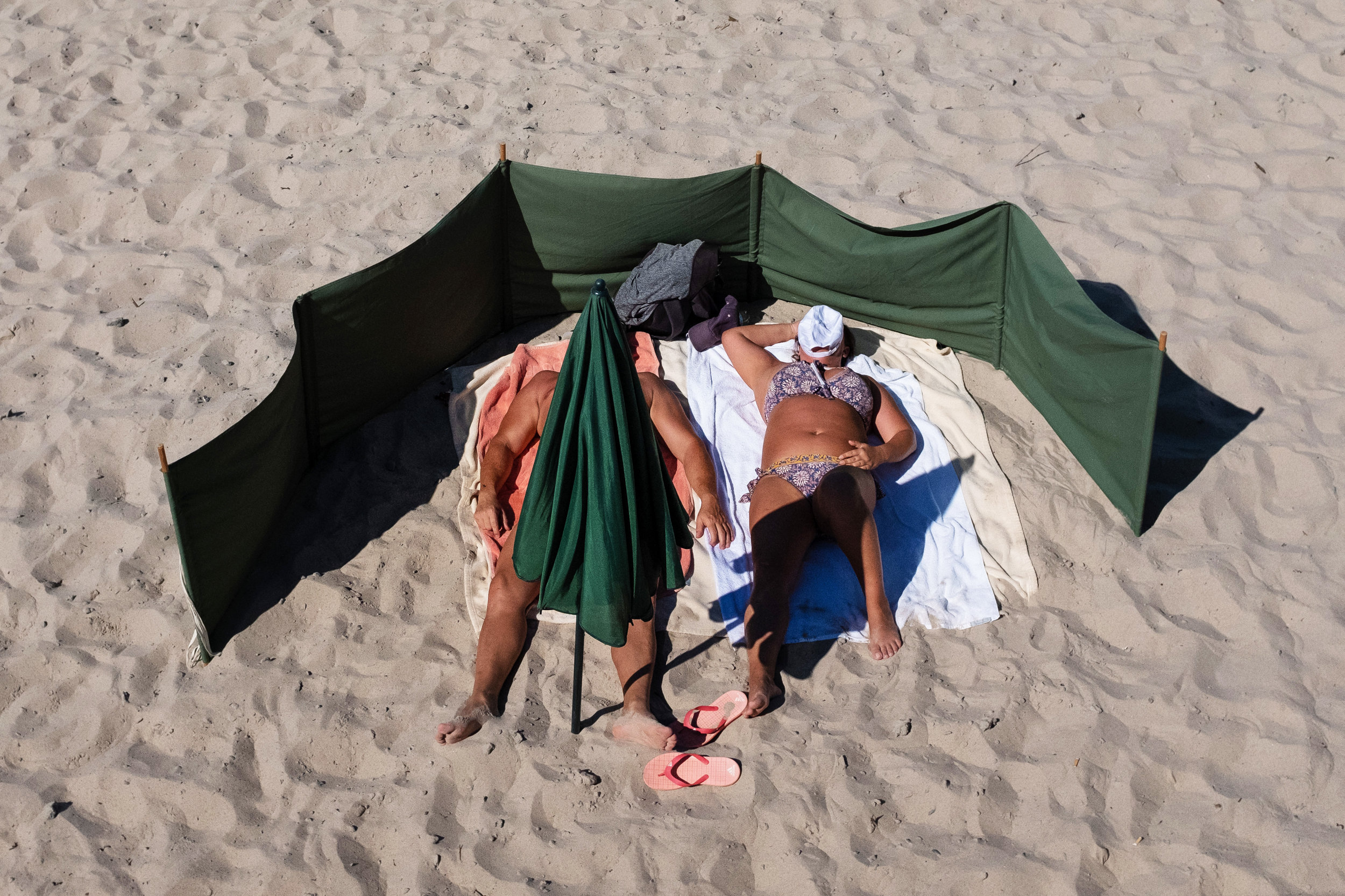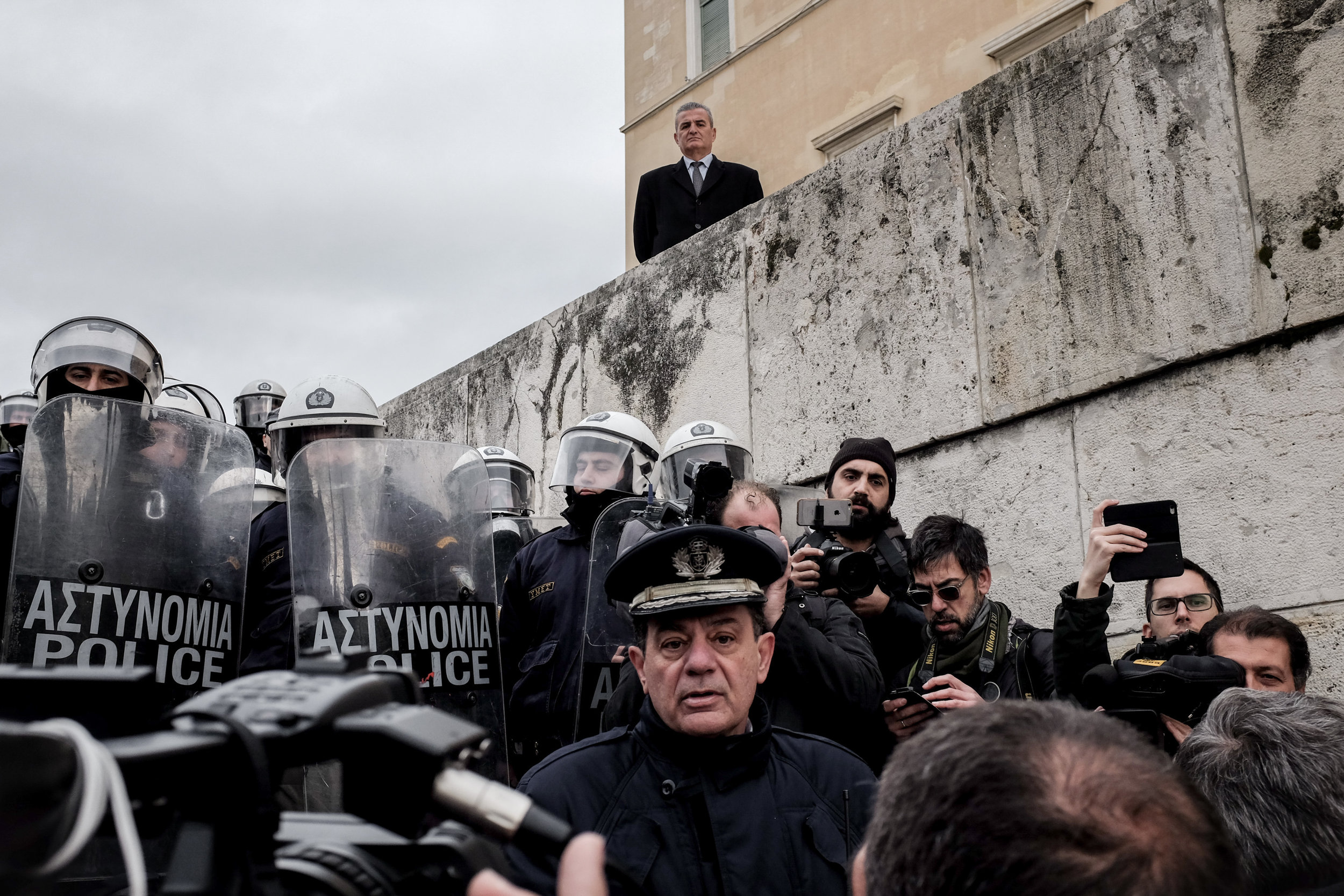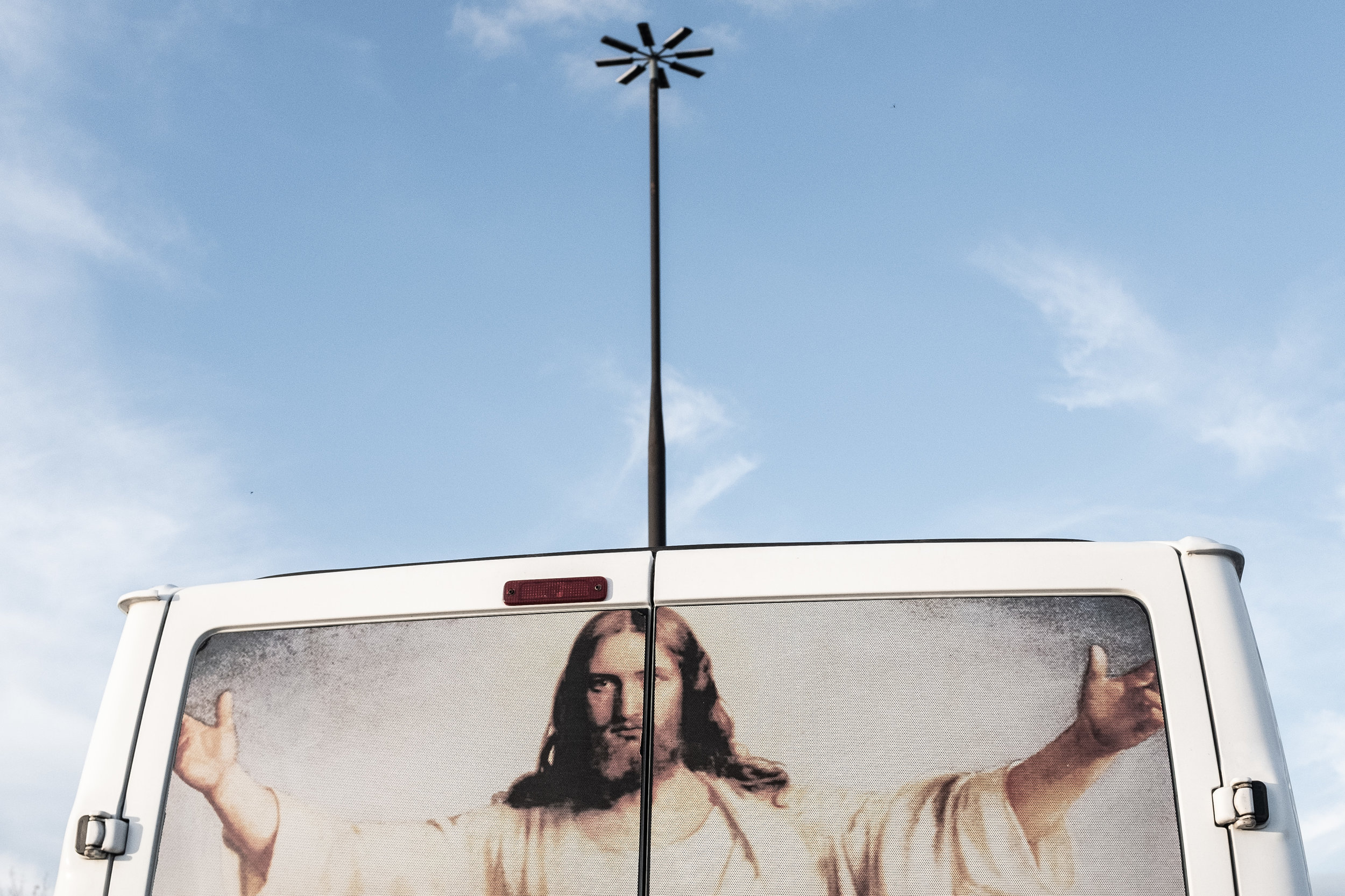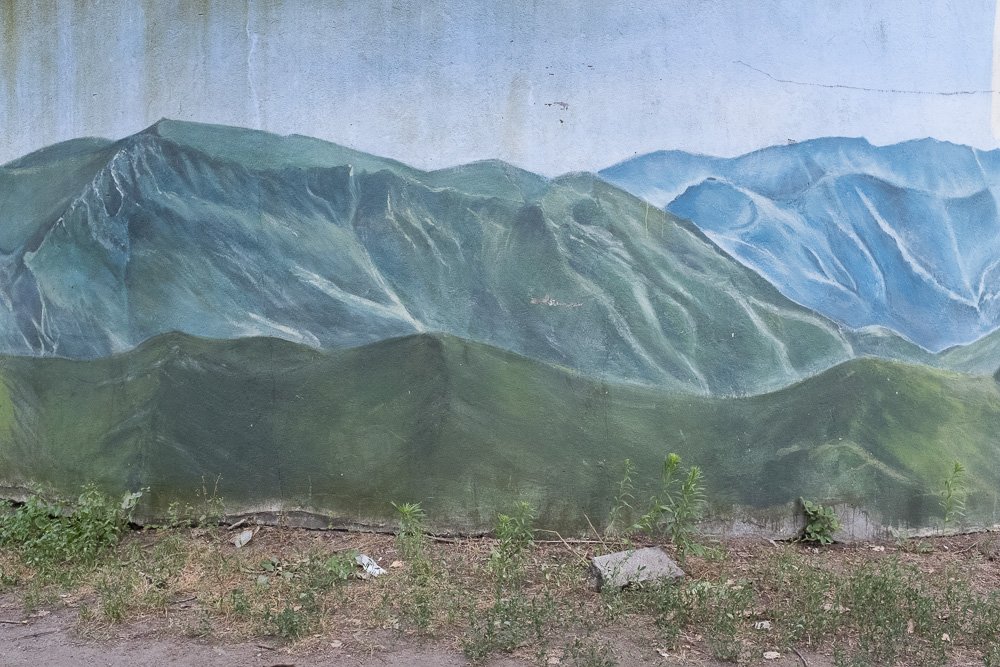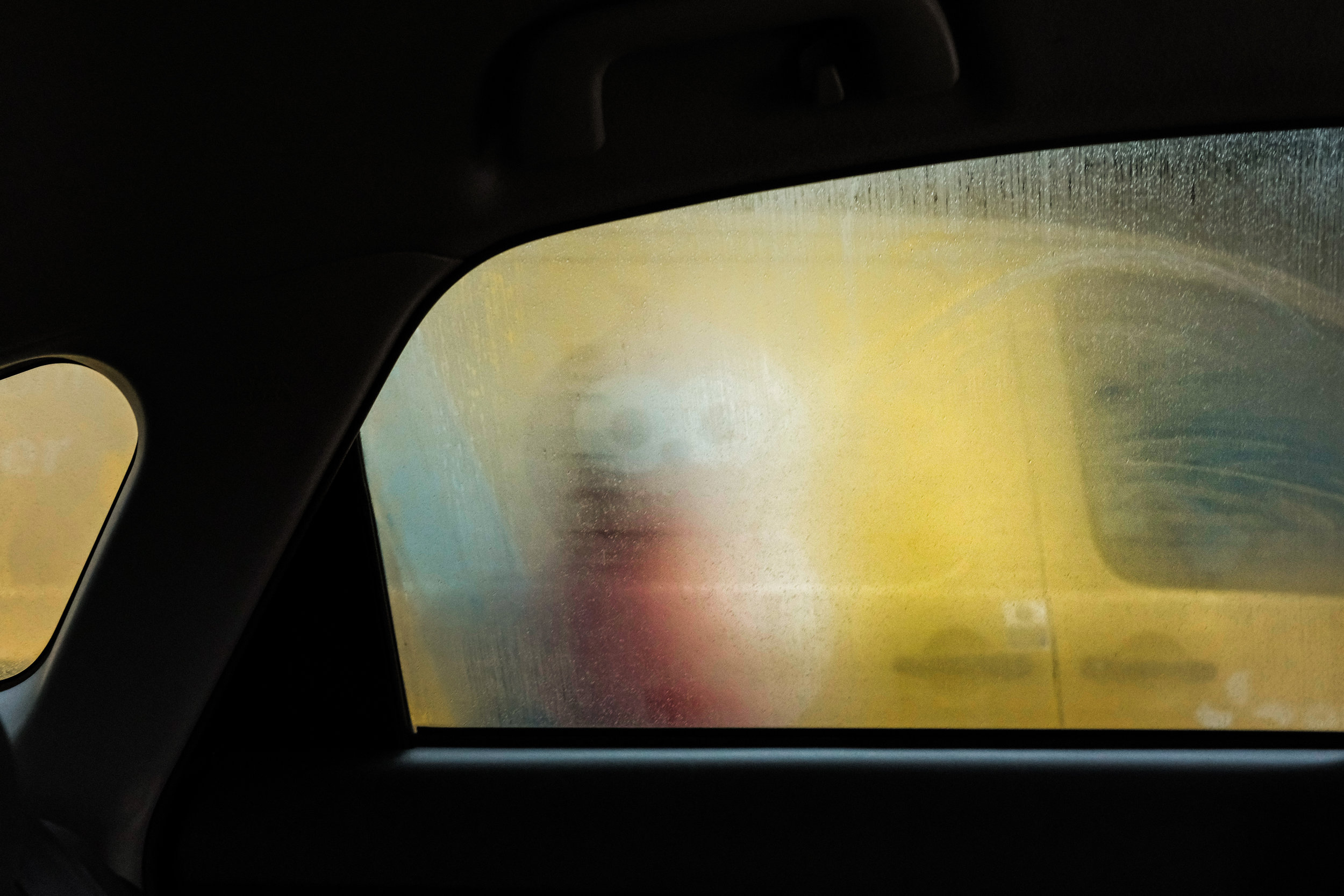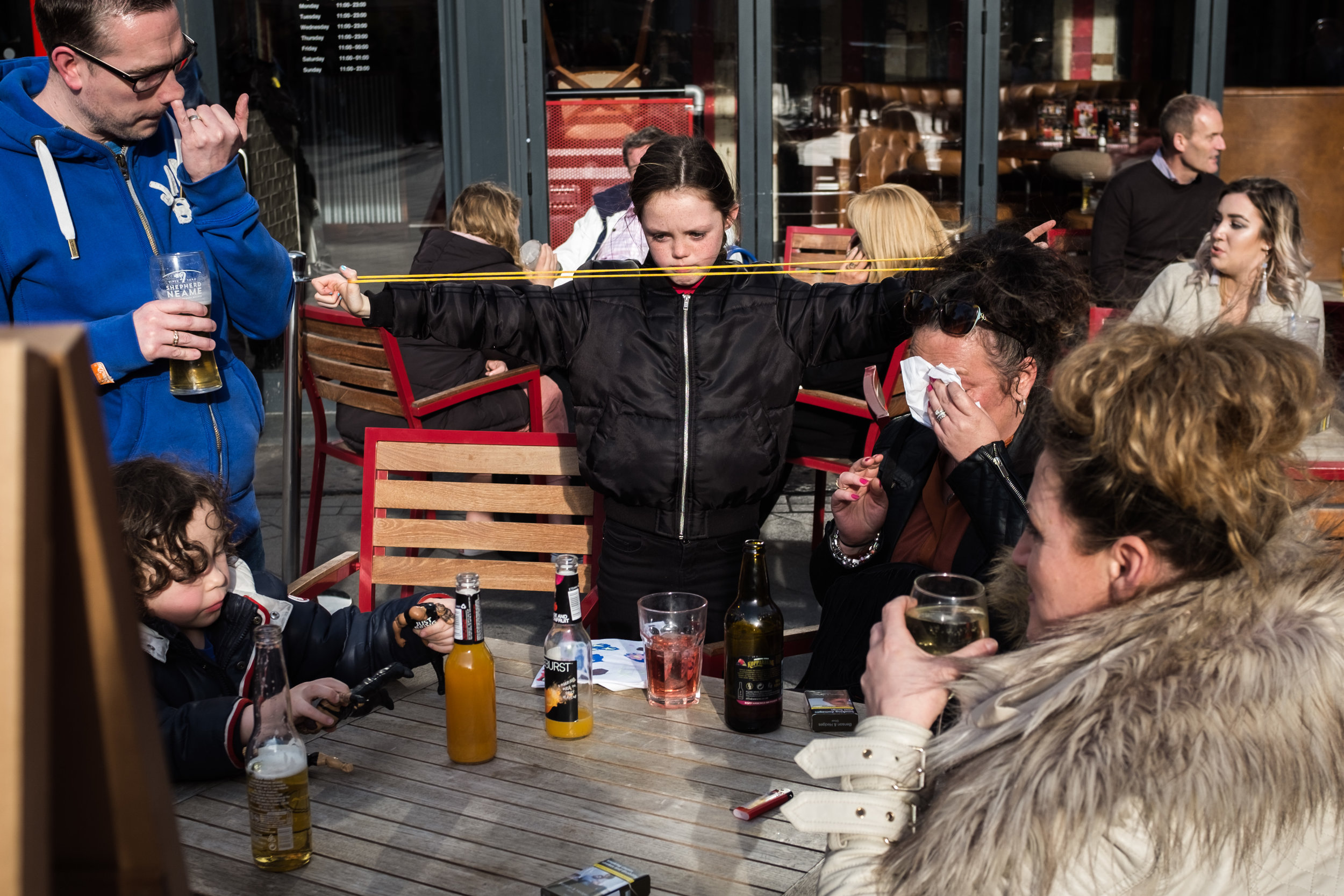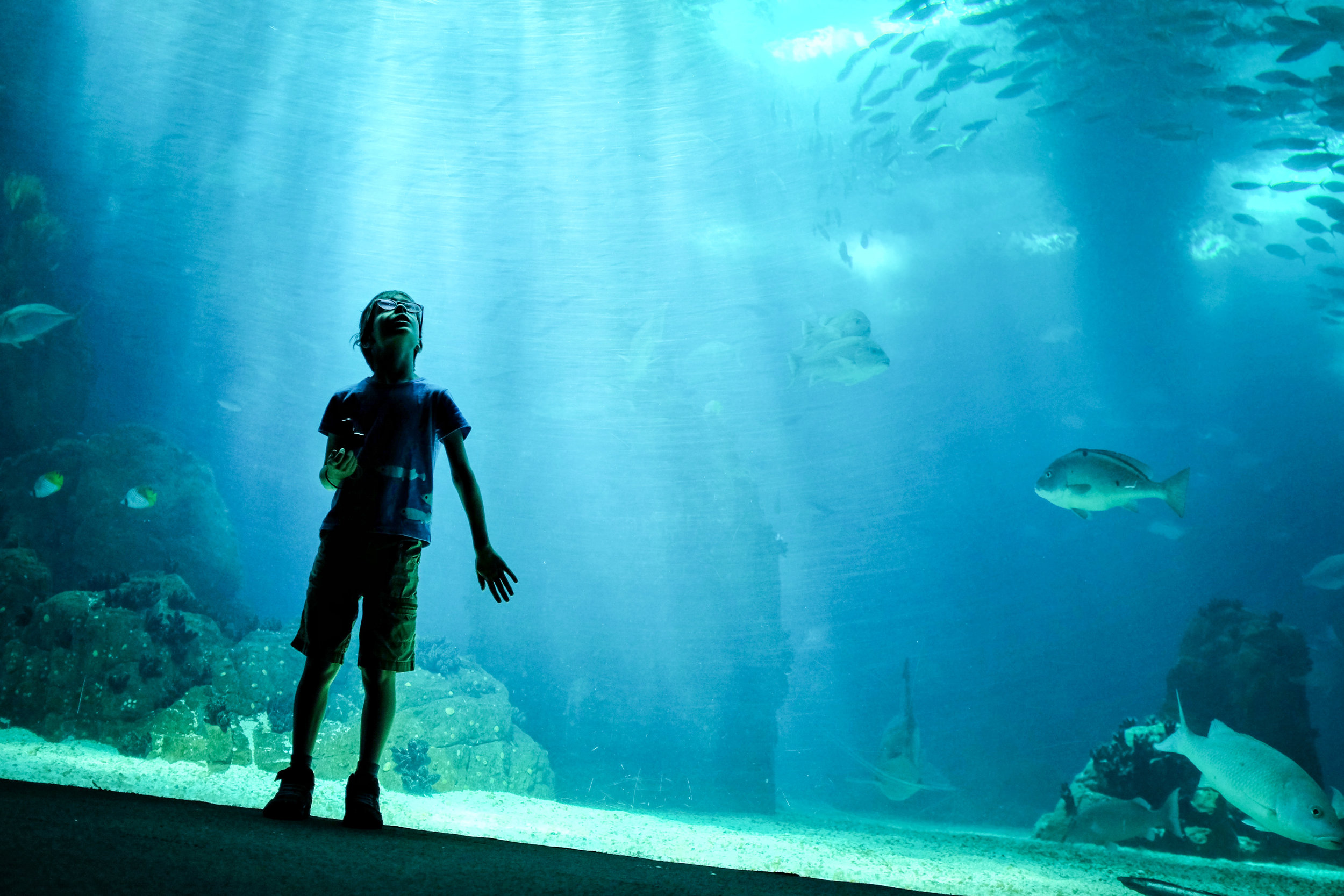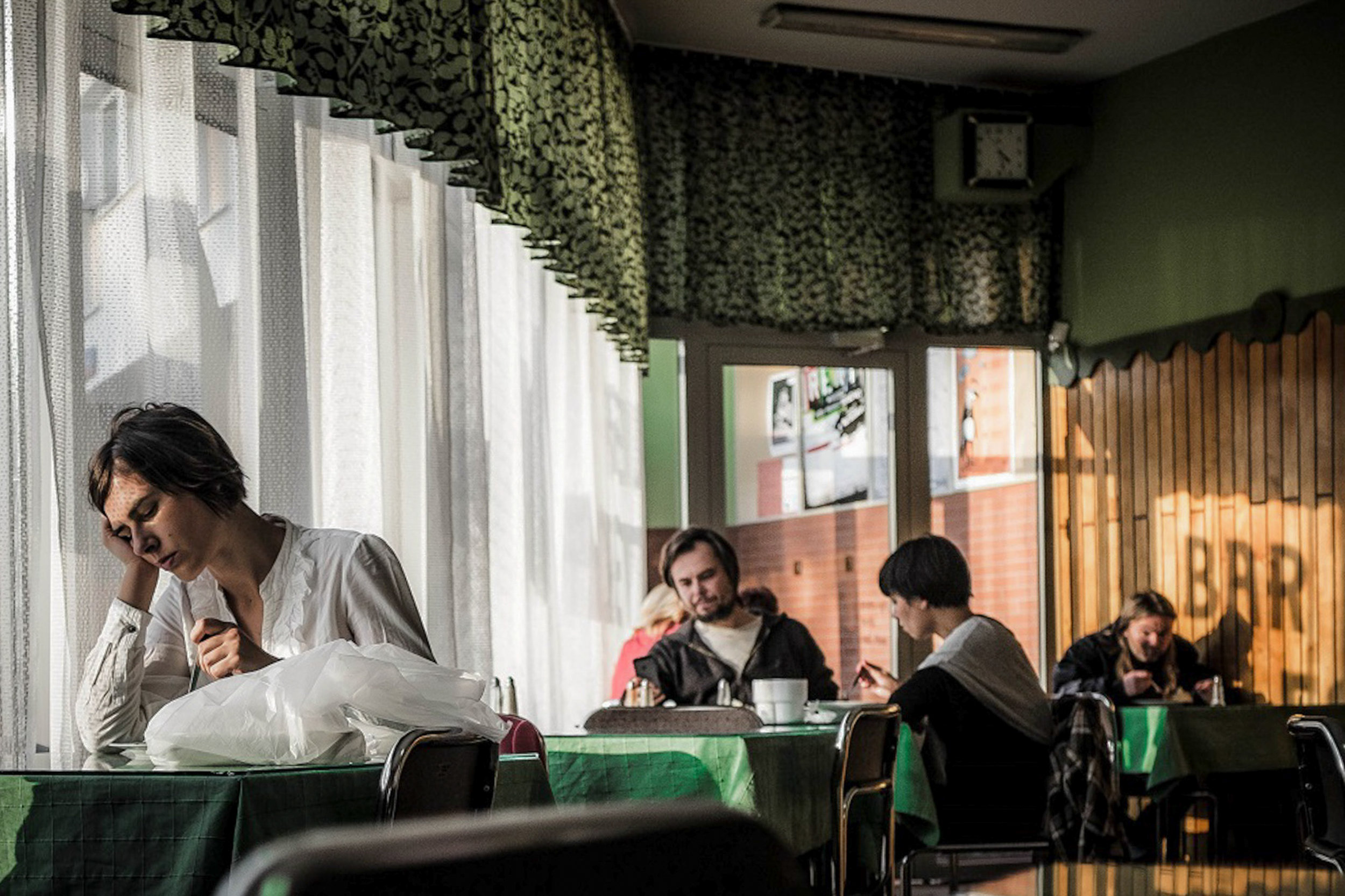Bangkok under a flashlight - interview with Tawanwad Wanavit
Tawanwad “Tang” Wanavit is a young Thai cinematographer, 29 years old, known on the internet also for his street photography. Born in Chiang Mai, a historic city in northern Thailand - the former administrative and religious center of the kingdom of Lanna, until 1558 -, he later moved to the capital, Bangkok, where he currently lives and where he finds, mainly in the suburbs, the characters and scenarios of his images.
Full of well-balanced elements, animals, flash lights and humor, Tang picture's, according to him, do not yield money. It's just a hobby. But in 2018, the pictures guaranteed him the award of APF street photography website, with over 140 million active followers, and the recognition of other important Thai street photographers, such as Tavepong Pratoomwong. "Tang’s photos are like watching blockbuster films. He uses a variety of techniques in a shot but that has never overlaid the focal point of the story he wants to tell with his lens. As a result, Tang’s photos are quite impactful and easily digestible for the viewers", said Tavepong in an interview about new promises from the Thai street photography scene, published on BK' website.
Member of the Full Frontal Flash collective, Tang says he's currently working on a project about his emotions. The idea is to transform a negative feeling into something positive, through photography, according to him. But he still doesn't know exactly how.
In the following interview, the Thai street photographer, who recently had his Instagram account hacked and had to start it all over again, also talks about his photography career, creative routine and references in street photography.
When and how did your interest for photography started?
I have always been interested in images, but I took photography seriously when I was around 18-19 years old. It was my first Film Photography class.
What attract you most in photography?
I’m attracted to the graininess, the harsh lights, and the spontaneousness in Photography. Everytime I see one of the elements, I can’t help but to approach it, maybe that’s one of the reasons why using Flashes attracts me, it always give me the harsh lights.
How did you started taking pictures?
It started when I traveled to Japan with my mother. There were only two of us, I carried my camera with me everywhere, and because my mother loves Shopping so much I had to find some activity to do, so I started taking pictures of what was around me.
Where do you take pictures more frequently?
I take photographs mostly in places that’s not clean. I haven't found out the reason behind walking into these places yet, but I love dirty places that has local people living.
How do you choose the themes and places you will photograph?
I don’t, I usually walk around and feel the place, I work instinctively most of the time.
Could you please describe your routine when you are taking pictures?
I usually drive around to the other part of the town. Outside Bangkok there are usually open fields. I feel great when I’m around there, and when something strikes interest to me, I just park anywhere and walk down to shoot.
I like the way you build your pictures. Frequently something is misshapen in a funny way, that tricks who is looking at it, mixing the real and the unreal. Sometimes you put humans and animals in the same level. There are a lot of animals, water and flashlights. The composition is always very harmonic and balanced. What are you main influences, in photography and other fields that you think have influenced your way of seeing?
I work as a professional Cinematographer, and Photography is only a hobby (that I take very seriously) I usually compose the frame from my experience in filmmaking, and adapt to the situation, maybe that’s why the frames are always so balanced. I have a deep connection with animals, they’re super cute and I feel relaxed when I’m around them. So I like to take pictures of them. Every animal that I see usually takes me back to the experience I had with my dogs when I was young.
What photographers do you most admire?
I love Trent Parke. Everything I wanted to do, he’s already done it. In Thailand, we have a lot of great photographers that I admire too: Tavepong Pratoomwong, Akkara Naktamna, Noppadol Mitreejit. They’re great Street Photographers.
You integrate a photography collective, o Full Frontal Flash. Why did you decide to join it? And how does it helps and influences your work?
I joined Full Frontal Flash Collective last year. We’re a collective focused on using flash on the street. Barry Talis asked me one day if I wanted to join and I said yes straight away, because I love this collective so much.
Are you working on any specific project right now? If yes, could you tell us about it?
I’m working on a project about my emotions. I often feel jealous of certain types of people, sometimes the feelings become strong and I think it has potential to become something nice. I just haven't figured it out yet.
Do you make money with photography too? Or just as a cinematographer?
Just as a cinematographer. I work at Hyphen & Slash Creative Studio. It’s a production company that focuses on making commercials for television and internet.
What equipment do you use to take your pictures?
I use Panasonic Lumix GX9 and 15mm Leica DG F1.7 Lenses.
Bangkok sob a luz de um flash - entrevista com Tawanwad Wanavit
Tawanwad “Tang” Wanavit é um jovem diretor de fotografia publicitária tailandês, de 29 anos, conhecido na internet também por sua fotografia de rua. Nascido em Chiang Mai, uma cidade histórica do norte montanhoso da Tailândia -- antigo centro administrativo e religioso do reino de Lanna, até 1558 --, mudou-se depois para a capital, Bangkok, onde vive atualmente e onde encontra, principalmente em área periféricas, os personagens e cenários de suas imagens.
Cheias de elementos bem equilibrados, animais, luzes estouradas e humor, as fotos de Tang, segundo ele, são apenas um hobby, e não dão dinheiro. Mas já lhe renderam, em 2018, o prêmio do site APF Street Photography, com mais de 140 mil seguidores ativos, e o reconhecimento de outros importantes fotógrafos de rua na Ásia, como o também tailandês Tavepong Pratoomwong.
“As fotos de Tang são como assistir a filmes blockbuster. Ele usa uma variedade de técnicas em uma foto, mas isso nunca se sobressai ao ponto focal da história que ele quer contar com suas lentes. Como resultado, as fotos de Tang são bastante impactantes e facilmente digeríveis para os espectadores”, disse Tavepong ao site BK, de fotografia, em uma entrevista sobre novas promessas da cena tailandesa de fotografia de rua.
Membro de coletivo Full Frontal Flash, Tang atualmente trabalha em um projeto sobre suas emoções. Diz que está buscando uma forma de transformar um sentimento negativo em algo positivo, através da fotografia. Mas ainda não sabe exatamente como.
Na entrevista a seguir, o fotógrafo de rua tailandês, que teve a conta do Instagram hackeada recentemente e está começando a postar suas fotos de novo, fala ainda de sua trajetória na fotografia, da rotina criativa e de suas referências na fotografia de rua.
Quando e como começou o seu interesse por fotografia?
Eu sempre me interessei por imagens, mas comecei a levar a fotografia a sério quando tinha por volta de 18 ou 19 anos. Foi quando tive minha primeira aula de fotografia de filme.
O que mais o atrai na fotografia?
Sou atraído pela granulação, pelas luzes intensas e pela espontaneidade na fotografia. Sempre que vejo um dos elementos, não consigo deixar de abordá-lo. Talvez seja um dos motivos pelos quais o Flashes me atrai. Sempre me dá luzes severas.
Como você começou a fotografar?
Comecei quando viajei para o Japão com minha mãe. Éramos apenas nós dois, eu carregava minha câmera comigo para todos os lugares, e como minha mãe adora ir ao comércio, eu tive que encontrar alguma coisa para fazer. Então, comecei a tirar fotos do que estava ao meu redor.
Onde você costuma fotografar?
Eu tiro fotos principalmente em lugares que não são limpos. Ainda não descobri o motivo por trás de entrar nesses lugares, mas adoro lugares sujos nos quais há pessoas vivendo.
Como você escolhe os temas e lugares em que vai fotografar?
Eu não escolho, eu normalmente ando por aí e sinto o lugar. Trabalho instintivamente a maior parte do tempo.
Você poderia descrever sua rotina quando está fotografando?
Eu costumo dirigir até a outra parte da cidade. Fora de Bangkok geralmente há campos abertos. Sinto-me ótimo quando estou por lá. Quando alguma coisa me interessa, estaciono em qualquer lugar e desço para fotografar.
Gosto do jeito que você constrói suas fotos. Freqüentemente, algo é deformado de uma maneira engraçada, que engana quem o olha, misturando o real e o irreal. Às vezes você coloca humanos e animais no mesmo nível. Existem muitos animais, água e lanternas. A composição é sempre muito harmônica e equilibrada. Quais são suas principais influências na fotografia e em outros campos que você acha que influenciaram sua maneira de ver?
Trabalho como diretor de fotografia profissional e a fotografia é um hobby (que levo muito a sério). Geralmente componho o quadro a partir da minha experiência no cinema e me adapto à situação. Talvez seja por isso que os quadros são sempre tão equilibrados. Eu tenho uma conexão profunda com os animais, eles são super fofos e me sinto relaxado quando estou perto deles. Então eu gosto de tirar fotos deles. Todo animal que vejo geralmente me remete à experiência que tive com meus cães quando eu era jovem.
Quais fotógrafos você mais admira?
Eu amo Trent Parke. Tudo o que eu gostaria de fazer, ele já fez. Na Tailândia, também temos muitos ótimos fotógrafos: Tavepong Pratoomwong, Akkara Naktamna, Noppadol Mitreejit. São ótimos fotógrafos de rua.
Você integra um coletivo de fotografia, o Full Frontal Flash. Por que você decidiu se juntar a ele? E como isso ajuda e influencia seu trabalho?
Entrei para o Full Frontal Flash Collective no ano passado. Somos um coletivo focado no uso de flash nas ruas. Barry Talis me perguntou um dia se eu queria participar e eu disse sim imediatamente, porque eu amo muito esse coletivo.
Você está trabalhando em algum projeto específico atualmente? Se sim, você poderia nos contar um pouco sobre ele?
Eu estou trabalhando em um projeto sobre minhas emoções. Muitas vezes sinto inveja de certos tipos de pessoas. Às vezes, esse sentimento se torna forte e acho que têm potencial para se tornar algo legal, mas ainda não descobri como.
Você ganha dinheiro com fotografia também? Ou apenas como diretor de fotografia?
Apenas como diretor de fotografia. Trabalho no Hyphen & Slash Creative Studio. É uma produtora focada em comerciais para televisão e internet.
Que câmera você usa para tirar suas fotos?
Uso uma Panasonic Lumix GX9 com uma lente Leica DG 15mm, f/1.7
Through the Polish streets - interview with Katarzyna Kubiak
Polish photographer Katarzyna Kubiak, 35, started shooting at the age of 30, when many people already consider themselves old enough to learn anything. A civil servant in Warsaw, she started taking pictures with her cell phone on a daily bases and on trips, until she won a contest with one of them. The quality of the file generated by the device, however, prevented her from participating in the exhibition with the winners and led her to buy a better camera.
With the new equipment, she took street photography more seriously. She was part of two collectives (Streetical Collective and un-posed) and entered other contests. She has won or received honorable mentions in four of them: International Photography Awards (2015), Moscow International Photo Awards (2016), Leica Street Photo (2016) and Human DOC Proclub Camera (2016). Her photos have been published in the World Street Photography Book, Debuts (2016), Street Photography Magazine, Street Photography in the World Book vol. 1, in Eye Photo Magazine and PhotoVogue by Vogue Italy. In parallel, she has been gaining visibility on social networks - on Instagram, se has now more than 20 thousand followers.
This year, she went to Rio de Janeiro for Carnival. Despite fears about violence in the city, and warnings given by cariocas on the streets, she photographed the party.
In the following interview, Katarzyna talks about her career, the experience of taking pictures in Brazil, the difference in photography in Poland, the difficulties of balancing personal life and photography, street photography and her plans for the future as a documentary photographer.
When and how did your interest for photography started?
I started to be interested in photography at the end of 2014. I photographed everything that somehow interested me. I was taking pictures with my mobile phone at the time. By chance, I won a photo contest, but because of the very poor quality of the photo from my phone, my photo could't take part in the exhibition. I was disqualified and I was very sorry. Then I decided to buy a camera.
What attract you most in photography?
It's hard to say, but I think beauty in photography. All the time I am surprised by something in different types of photography
Why did you chose street photography?
I can't say I choose street photography because it became quite natural. It's just a form that suits me the most
What are the biggest challenge in street photography? And what do you like more about it?
Challenges in street photography are also what I like the most. I think it's a curiosity about what you can see and how you can show it. The biggest challenge, in my opinion, is to take a photo that will interest others. We are producing so many pictures now that it is very difficult to do so.
Where do you take pictures more frequently?
I usually take pictures during my travels, mainly because I don't have time to do it every day. Working and raising my daughter takes me most of the day. Recently, mainly on weekends, I go out to take pictures in my hometown more and more often.
How do you choose the themes and places you will photograph?
As I wrote earlier, I take pictures mainly during my travels, so these are usually the places I want to see in the country I'm visiting.
Could you please describe your routine when you are taking pictures?
I think I treat it now more as a form of walking and taking pictures. I never have the usual routine. I just walk and take pictures of everything I find interesting.
Many scenes in your pictures are funny. What are your main influences, in photography and other fields that you think have influenced your way of seeing?
Contrary to what you've noticed, I like visually pretty pictures more than funny ones. I think it's because of my love for cinema. I think it's a big part of how I take pictures.
Could you quote other street photographer of you generation that you admire, but are not necessarily references?
I am constantly discovering new great photographers and there's no way I can name all the people I admire here. I am also not good at remembering names, I am more familiar with other photographers after the pictures they took.
You integrate two photography collectives. How does it helps you?
I'm not in any collective right now, but I'm not excluding anything. Some time ago I felt that being there didn't bring anything and I decided to give up. However, I am always open to new ideas and if I decide that it is worth investing time in something and my activities I will definitely do it.
I saw that you have been to Brazil. I guess it was for Carnival. How was your experience taking pictures here?
Yeah, I was in Brazil this year. I really wanted to see with my own eyes what the world-famous carnival looks like. I read about the dangerous situation in Rio from the very beginning, but I didn't know what to expect. There are more and less safe countries in Europe, but that is not comparable at all. This is something completely different. In Europe I don't have to worry about the camera, I can walk with it in my hand and nothing will happen. The first time I left the hotel, people on the street came up to me and told me to hide the camera because otherwise someone would steal it. This made it very difficult for me to take pictures, because everyone was paying attention to me, most of the time probably because they were wondering how to be so stupid to walk with the camera on top. Definitely in Brazil you have to have your eyes around your head and be more careful than in Europe. Fortunately, I didn't have any unpleasant situation and I remember the carnival as a great experience. Of course, after a few days I carried my camera in my backpack, which I kept in front of me. I took out the camera, took pictures and hid it back. It was my way of taking pictures in Rio :)
How different was it from taking pictures on the streets of Poland? How people normally react to street photographers in Poland?
As I wrote earlier, it is very dangerous in Rio, but at the same time people were friendly and wonderful, very open. This makes it different from people in Poland who are rather closed and inaccessible. Surely it' s a bit of a result of our culture and history. We are less trusting and suspicious. This also results in taking pictures in Poland. Often people complain or pay attention and ask why I take pictures of them.
Are you working on any specific project right now? If yes, could you tell us about it?
Unfortunately, at the moment I am not working on any project, although I do not lack ideas. For personal reasons I have not had the time to realize it. In the near future I'm going to focus on learning new things in photography
Do you make money with photography? Or it is a hobby? If it is hobby, what is your profession?
Sometimes I make money on photography, but right now it's mostly my hobby. I am currently working as one of the managers in public administration.
What equipment do you use?
Fuji X100F
How do you see your photography today? I mean, how do you feel about your work? What would you like to explore more? What would you like to left behind?
I'm sure my approach to street photography has changed. I don't take it as seriously as I did before. It's great fun for me and I'm still passionate about it, but now I'm going to try to focus on documentary photography and as I wrote I want to learn new things.
In your portfolio, what pictures do you like more?
I think I really like multi-layered photographs, but I also pay a lot of attention to aesthetics. I like it when there is a lot going on and the frame is close.
What would you suggest for those starting to taking pictures?
In fact, you can say that I, too, am at the beginning of this journey all the time. A few years of photographing doesn't make me an expert in this field :) However, I would like people not to pay too much attention to the opinions of others. And the other way round, let them not be jealous of the successes of others.
Wells Blog
Duis mollis, est non commodo luctus, nisi erat porttitor ligula, eget lacinia odio sem nec elit. Maecenas faucibus mollis interdum. Nulla vitae elit libero, a pharetra augue.
